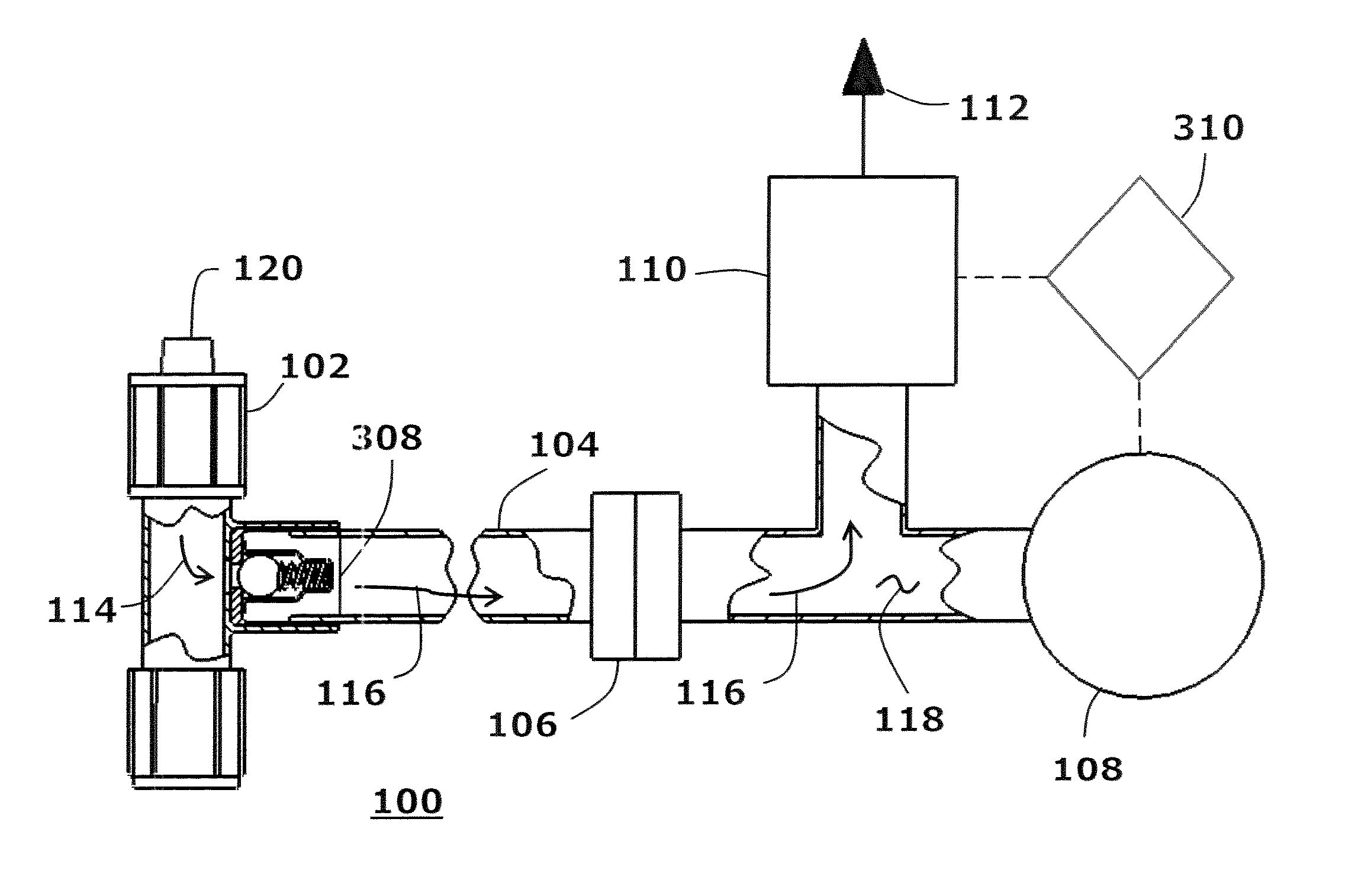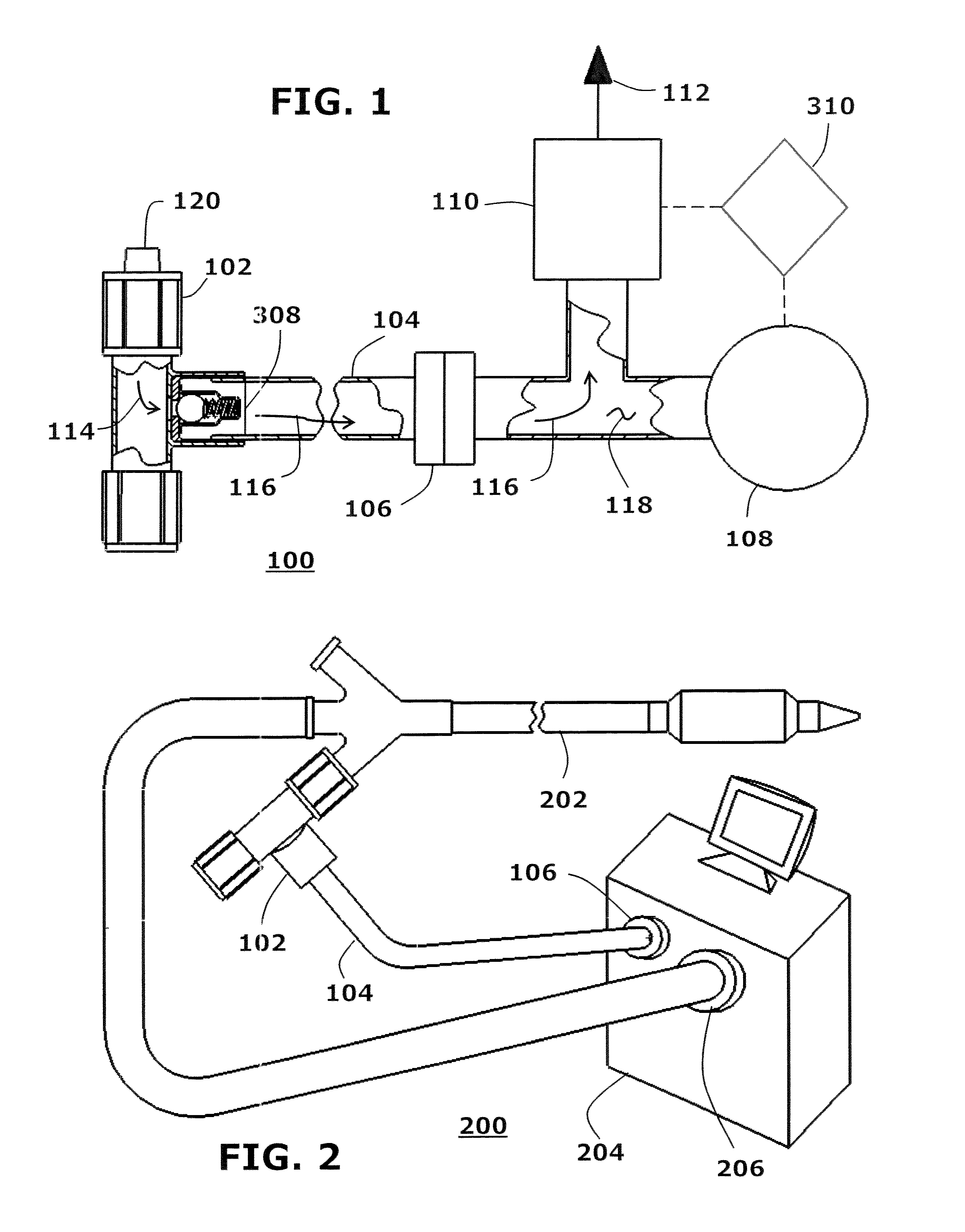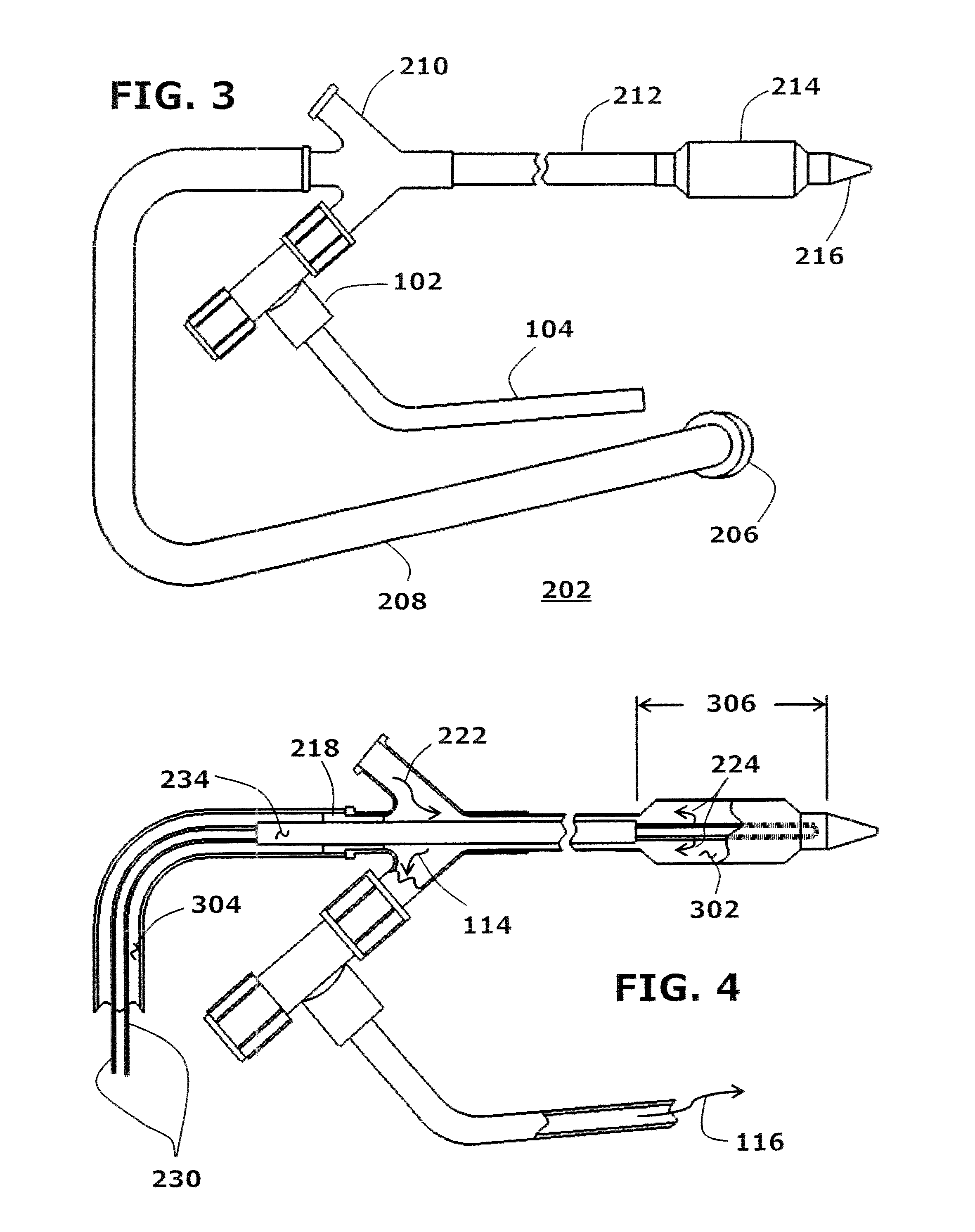Automated balloon catheter fluid purging system
a technology of fluid purging system and balloon catheter, which is applied in the field of automatic balloon catheter fluid purging system, can solve the problems of increasing the volume of the balloon chamber, affecting the operation of the catheter, and unable to meet the needs of medical devices, so as to optimize the gas escape path, optimize the rate of pressure rise, and improve the effect of pressure ris
- Summary
- Abstract
- Description
- Claims
- Application Information
AI Technical Summary
Benefits of technology
Problems solved by technology
Method used
Image
Examples
Embodiment Construction
[0032]The following detailed description is of the best presently contemplated modes of carrying out the invention. This description is not to be taken in a limiting sense, but is made merely for the purpose of illustrating general principles of embodiments of the invention. The scope of the invention is best defined by the appended claims.
[0033]Referring to FIG. 1, the present invention provides a fluid purging system 100 that receives incoming fluid 114 through an inlet port 120 of a relief valve 102. The relief valve 102 is a standard spring-energized relief valve having a differential cracking pressure pre-set within the pressure range of 20 to 750 psig. The relief valve 102 acts like a check valve by allowing flow in one direction and restricting flow in the reverse direction. Flow through the relief valve 102 is possible when the internal fluid pressure rises above the cracking pressure of the relief valve 102. For the present invention, the cracking pressure can be set within...
PUM
 Login to View More
Login to View More Abstract
Description
Claims
Application Information
 Login to View More
Login to View More - R&D
- Intellectual Property
- Life Sciences
- Materials
- Tech Scout
- Unparalleled Data Quality
- Higher Quality Content
- 60% Fewer Hallucinations
Browse by: Latest US Patents, China's latest patents, Technical Efficacy Thesaurus, Application Domain, Technology Topic, Popular Technical Reports.
© 2025 PatSnap. All rights reserved.Legal|Privacy policy|Modern Slavery Act Transparency Statement|Sitemap|About US| Contact US: help@patsnap.com



